
Volume 5, Number 2 2023
Chuck Souza
E NANA
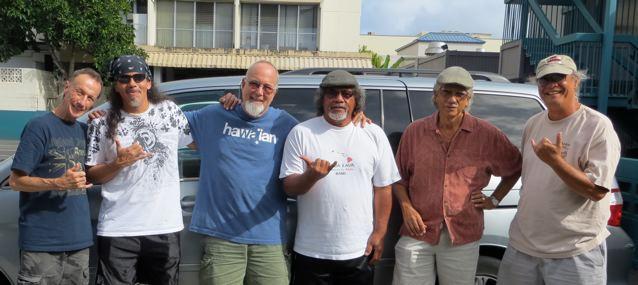
Kevin Daley – drums / Beau Leonidus – bass guitar / Chuck Souza – guitar, vocals Greg Kekipi – ‘ukulele / Kirk Thompson – keyboards / Sam Henderson – guitar Creed Fernandez – congas, percussion (not in photo)
Imaikalani Kalahele
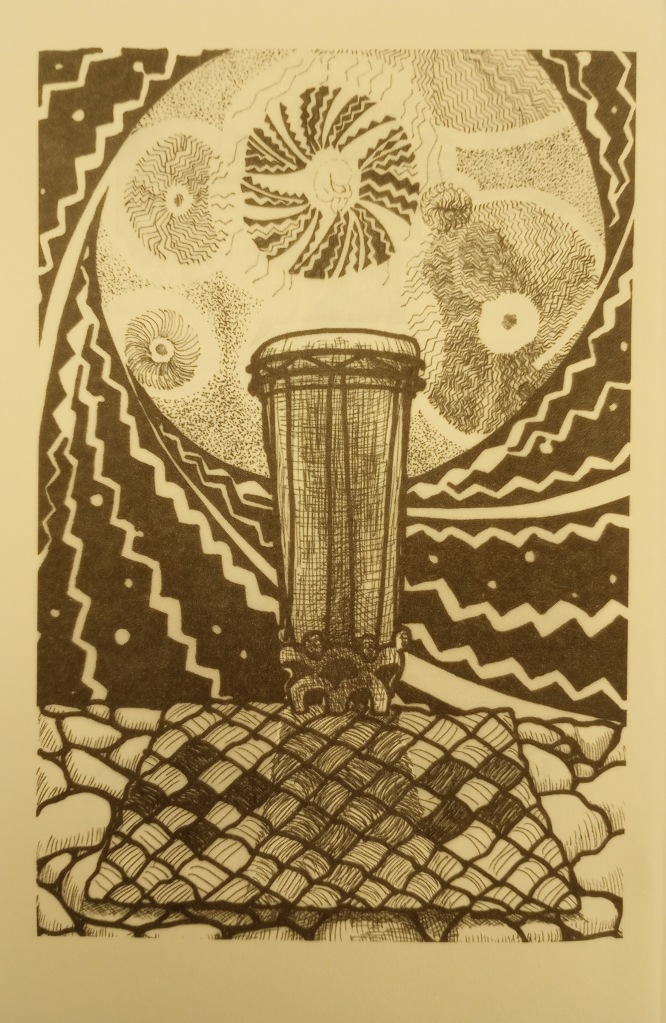
Imaikalani Kalahele
MAKE A FIST
Make a fist
hold it high
pahu scream.
Make a fist
hold it high
Let our ancestor’s
rage infest your
intentions.
Make a fist
hold it high.
Plant the resistance
deep.
Kanu! Kanu!
Kanu now.
Ho’oulu hou.
Ho’oulu hou.
Ho’oulu hou.
Brandy Nālani McDougall
KUMUHONUA
No one can say you don’t belong here
now, though your roots are recent
as the laua’e whose blond-haired rhizome
nests upon the brown root fabric of nā palai.
Together, they cling to the porous basalt beneath,
whose fire cooled nearly 200 years ago in darkness.
Still, your name resounds in the rain
rivuleting from the roof, through the gutter.
Your blood is carried in the ‘alae washed
from the cement to meet the muddy gulch.
There, your face is carved by the wind, your eyes
always fixed upon the heavens, toward salvation.
Imaikalani Kalahele and the Mokaki Band
MAKE ROPE
Imaikalani Kalahele – improv poetry / Peter Kealoha – guitar / Chuck Souza – guitar Greg Kekipi – ‘ukulele / Peter Chamberlain – keyboards
Mahealani Wendt
KALUA
I.
Sometimes I imagine
The grey corpses
Of early missionaries
Stirring lustily
In their vaults
Joining in
A rousing rendition
Of ‘Kalua’
The song from
Birds of Paradise
That Hollywood yarn
Starring bromide white
Deborah Paget
Who conjured up
A native woman
About to be sacrificed
To the great volcano god
By heathen Hawaiians
Somehow it seems fitting
Since missionaries
Brought that pilau
That they should fugue off –
Organist
Choir
Congregation
Included
(This is the night of love
This is the hour of
Kaa-luuuuuu-ah – )
II.
Whenever ma and Auntie Liz
Sang that song
Tutu would scold
‘A’ole maika’i kela himeni!
Meaning
That song is no good
Or more to the point
That song
Is not Hawaiian
She and the girls
Would kui lei
On the front porch
Of the old house
On Cummins Street
For boat days
Then they would sing
Ku’u Pua I Paoakalani,
Kamalani o Keaukaha,
Kalama’ula –
But the sweet fragrance
Of those long ago gardens
Would soon disappear
Following Deborah Paget
To cinder and ash
Mother
What did you know
How could you know
Sneaking movies
At Kewalo theatre
Except to lose
Hawaiian skin, lips, hair, heft –
Hollywood,
After all
Wasn’t about to save you
From volcano sacrifice.
III.
In the 1940s and ‘50s
All along Honolulu Harbor
The old Hawaiian stevedores
Would kanikapila
Late into the night
They would gather
At Mokauea
At Kewalo
At Kalia
Lifting sweet harmonies
To ocean, wind, stars
This was before
Walter Dillingham dredged
Caul and skull
Crushed and cured
For pavement
This was before
His asphyxiate tar
Blackened everything
This was before
Union bosses
Buried dissidents
In hotel footings
Then called in the kahu
To bless them
This was when Waikiki
Was ringed with loko i’a
And throw nets filled with
‘Aholehole, ‘anae,’a’ama
Were commonplace
Those days
Must have been sweet.
Carl Pao

Lino Kaona
MAKE MANU: MANU MAKE
(dead bird: death bird)
My old grandfather,
Bearded, long haired,
Burned very dark by the sun,
Kupuna Kane: Na’auao Makua
(clever old fellow: wisdom’s father)
Lived in the old style
In a one-room-house he built
Near Halawa on Moloka’i.
Ma’alo ke kai ea.
(giant wave passing)
When I was a boy
He taught me
To see the stars as they are
And to place my hands dry
Upon the oily smooth surface of the sea.
Ma’alo ke kai emi: Ka pau ‘ana!
(giant energies pass: ending comes!)
The hot bright day
When the net of the world’s form
Was stretched to bursting
Across the truth of things,
Containing it as best it could,
A silver airplane flew by,
Passing Kikipua Point,
Looking for Ho’olehua field.
My grandfather’s face changed
Like clouds before the sun,
His whisper was like echo-wind:
Lele ka ‘iwa i ka nani
(frigate-bird flies in beauty)
Ho’ele’ele ka mikini mokulele
I ka lani
(machines darken the sky.)
My grandfather stood waist-deep
In the sea
Until after sunset,
When the wind returned,
But his eyes were tightly closed.
Donovan Kūhiō Colleps
Wākea’s Blue Teeth (super bowl poem)
It’s not so easy to smash the compass.
To rely on the winds the golden hum of
Herb Kane clouds navigating
the tips of these mountains.
It’s not so easy to modify the compass.
To apologize when your brothers
are spreading the sashimi
and churning the shoyu mustard.
It’s not so easy to ignore the compass
because it seems to have always been here
in all its sextant glory pointing
distracting you from Wākea’s blue teeth nibbling Papa’s chest.
It’s not so easy but it’s possible
to say “aloha, for now” to family and friends
pouring bags of ice into clean coolers
before the big show.
To walk past uncle’s squid lū‘au bubbling green,
to get in that car and drive, with nothing
but a fistful of quarters
for the library Xerox machine.
It’s possible because when those books
slide across the counter and you walk
to an empty table the compass begins to shake
and the needle is never the same again.
With every turn of a Pacific page
you realize pukas are being filled
or new ones uncovered.
And the art of listening brings with it memories,
of the physics of his hips and hands when you first saw him
cast that net slicing the horizon.
The needle doesn’t like it when you flatten the cube
to discover your kūpuna were always
just around the corner from where you sit now.
And the halftime show hasn’t even started, yet.
The time it takes to get from the third million-dollar commercial
to the fifth is equal to the time it takes to find the Kānaka Maoli name
of the land that raised you buried under the pavements under
the brand new two-lane fast food drive-thru.
But what the compass really hates what it’s really afraid of
is when you see the lo‘i in the same way that you see
that empty Sunday afternoon library when you finally
see the moana in your kūpuna’s eye.
So now when you return home and the cooler is empty
and the sashimi spiral is nearly gone unfurl
those Xerox copies across the dining table consoling
the cousins who lost money on the spread.
And as the compass repairs itself as it always does
it will feel the sting when it finds you tomorrow
with your back being warmed by the morning sun.
Joseph Stanton
HORROR IN THE CITY THAT NEVER SLEEPS
- The Blob Invades Queens and Becomes a Staple at Trendy Eateries
The slime from outer space
was, at first, defeated by a gang of suburban teens.
That was, it seemed, the end of the invasion, but,
as so often happens in the Tri-State Area,
the determined pollutant lingered in the soil,
until, at last, a bit of slime slipped down a drain
and drifted to the East River.
A few days later, it came ashore at Socrates Park,
where it devoured a farmer’s market
and most of Costco’s shoppers
before cutting a destructive path up Broadway into Astoria.
Ascending the winding steps of the subway stop,
it absorbed the Manhattan-bound commuters,
but here the authorities caught up with it.
Dispatchers had spread the news out of New Jersey
that foam from fire extinguishers could stop the stuff.
As the frightened muck fled across the tracks,
it was sliced and diced by an arriving N train.
At this point an alert Flushing-bound chef
scooped up a large jarful of the slime
and carried it to his high-tech kitchen
where he subjected the hapless alien
to further freezing, hydrocolloidial infusion,
tranglutaminase injection, and spherification.
The chef rendered what had been a blob
into a surprisingly tasty paste
that presented beautifully on the plate.
Despite concerns about indirect cannibalism,
word spread about this bit of culinary constructivism—
it went viral, in fact—and the rest is cookery history.
Molecular gastronomy may be a horror to some,
but to a progressive chef and his elite clientele
it can become the nueva cocina life of spice.
- Nosferatu in Manhattan
Under the Frick, entirely out of sight,
he resides when not at your throat.
In daytime nightmares
he dreams he dies in beams of morning light—
his eternity, he fears, up in smoke.
But mostly he enjoys eternal life
on endless subway rides
where commuters recline in late-night transit,
providing a choice of necks.
He likes, too, working his evening shift
at a pizzeria where cheese is all he needs to drip.
There’s no boss there he needs to please,
but he doesn’t partake of co-workers.
It’s wiser to eat on the town, a town that never sleeps.
There’s so much blood in Times Square,
to name just one of his favorite night spots,
that he knew, if he could make it here,
he would not need any other where.
- The Werewolf of Washington Square
A stockbroker by day,
he lurks at night in his walk-up
on West 4th Street.
To protect his portfolio
he keeps himself,
when the moon is full,
on a short leash.
On days of bad hair,
he lingers in the dog park
on the north side of the square,
pretending to be his own pet.
Fortunately,
with regard to this ruse,
some of his best friends
are dogs.
- The Invisible Man in Grad School
He had a big advantage at NYU—
no need to pay tuition.
Still, there were bad days.
He was always counted absent
and no amount of raising his hand
could let him ask a question
or argue a point.
Chairs were safe for him
only in empty rooms.
He could cruise
the dorms
and ogle beautiful women in dishabille,
but, when he’d wink and whistle,
they’d turn to the teapot.
Sadly,
he never completed his studies.
Distaining the “No Walk” sign
at the crosswalk at 8th Street,
he darted across 5th Avenue
and was run over by a truck.
The driver, of course, saw nothing.
The invisible man
remained an unseen
bump in the road for months
- Godzilla in the Big City
In this horror,
the monster does the town,
Manhattan, big time.
Paints it blood red you might say.
His antics devastate—despite the best efforts
of Matthew Broderick and Jean Reno—
the Flatiron and Chrysler buildings,
most of the subways, too,
and Madison Square Garden,
which becomes a nest for Godzilla’s baby vipers.
But, at the last, the Brooklyn Bridge becomes the means
to suspend the beast in his animation.
Hooray! Nineteenth-century architecture wins again!
Mark Young
is not to have thought
According to the
patter over & in
between the tracks
from unsigned
bands that the late-
summer elephant is
playing, a burst of
radio energy from
deep space is
likely to cause the
scaling back of opium
production on campus.
The peer reviewed
literature proposes
the use of ritual
cleansing & the
wearing of under-
wire bra bikini
bathing suits with
low cut bottoms
to prepare for any
subsequent mayhem.
Snake
SHE BURNS
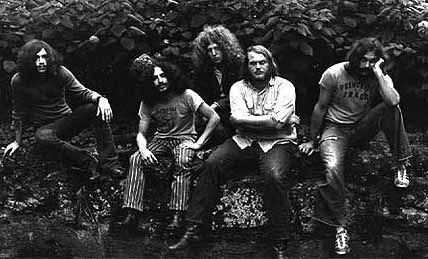
Simeon Slovacek – lead guitar / Vince Arpey – drums / Michael Armstrong – lead singer / Larry Ward – bass guitar / Peter Chamberlain – keyboards.
Jim Kraus
PUBLIC ACTS / PRIVATE ACTS
When desire finally finds a voice,
it is the voice of a judge emerging
from days of watching
the happiest of lovers flirting
themselves against the screen
of his chambered mind.
Swelling with discretion, the past
reaches out like spurned love
to shake the sappy words,
to caress the silken words,
as if the ear is the most private part.
That is to say, the past resembles
inequality rendering injustice
in the kaleidoscope of the present.
Broken threads link mouth to ear:
a kiss rejected, the words
freeze-dried or sugared.
I imagined it was you on that screen,
he may have said,
our bodies melting together,
to the beat, to the beat
of our hearts.
In the morning, the lovers
wince before the senate of mirrors;
the past slides like candy
in their mouths.
Accusation whispers in the ear of the nation:
searching for confession,
public conscience laps its private milk
like a puppy or veritable human touch.
Michael Nyers
Disappearing Act
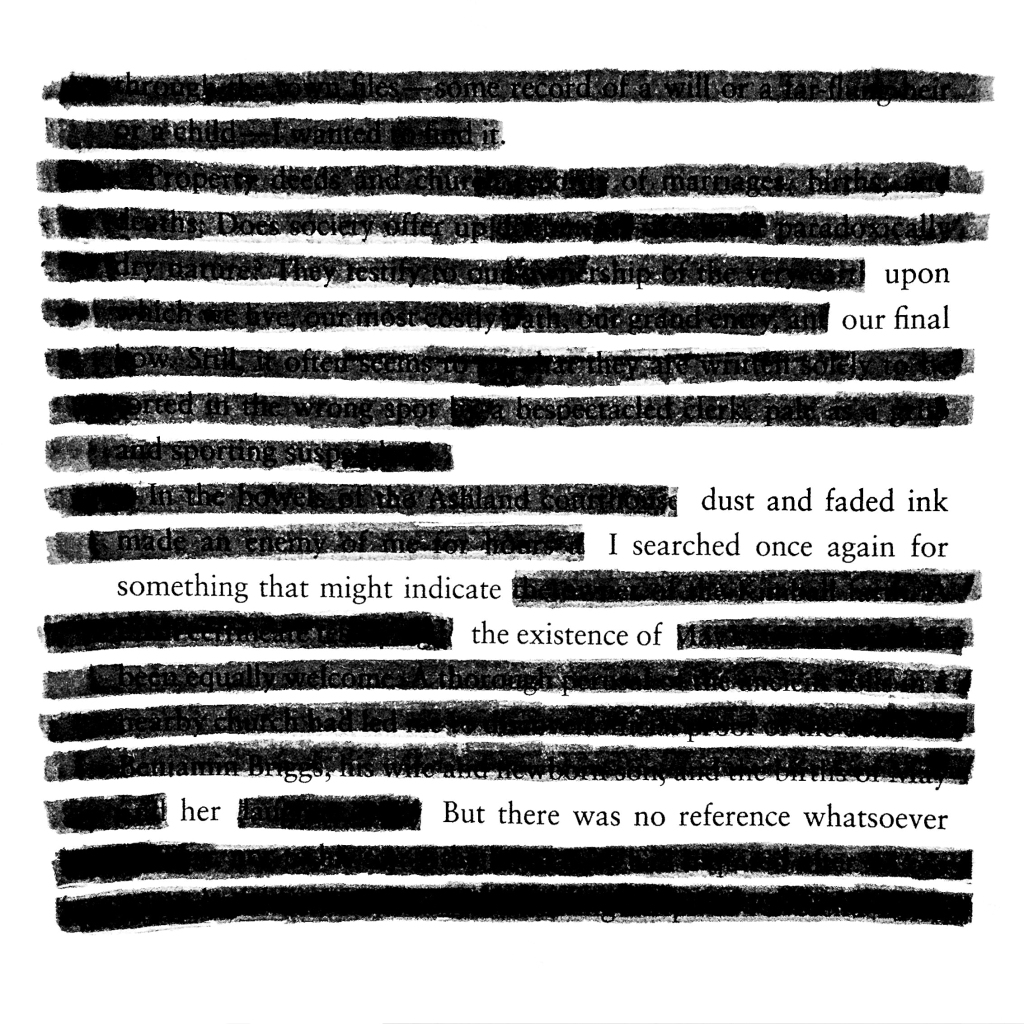
Albert Wendt
A SOUVENIR
You left me a souvenir:
Your name which curls up
inside me at night.
To your name I try to give
your shape but it refuses
to fit my design.
Sometimes through the many windows
that I am your name wanders
looking for your voice.
I have all of you to remember
even your footsteps
which now never arrive.
A souvenir. Your name.
SUPERMARKET
Push your silver cart
through the supermarket of love.
Select the delicacies you can afford.
When your cart is full
take it to the checkout counter.
(Remember no credit is allowed!)
Pay in cash to the supple lady
with the purple lipstick smile
and the still stone eyes
you will remember for the rest of your life.
THE ONE-EYED EUNUCH
I’ve purged my dense head
of all the women I’ve loved
imprisoning them in a dream
in which they will love
one another in the harem
of the one-eyed Eunuch
who drives a golden Rolls Royce
and feeds on Samoan cocaine.
And who is forever asking:
“Have you ever tried dying
to see what its like?’
Joseph Stanton
AYA NO TSUZUMI
Here in my dark garden
I pound and pound the drum
that makes no sound.
My love for you
is a white bird
with a flower in its beak
that rises
outside your mind’s window
on wings
that beat and beat.
But still you will not hear.
I have spent my soul
on a glimpse of moon
through bare branches.
I will wash my weeping
in shadow
and dream myself a demon
dancing in the dangerous corridors
of your heart.
Snake
CATFISH BLUES
Robert Gelles – lead guitar / Vince Arpey – drums / Michael Armstrong – lead singer – harmonica / Larry Ward – bass guitar / Peter Chamberlain – keyboards / Backup trio of singers from the lead guitarist’s own ska band – perform an impromptu intro
Rob Sean Wilson
IN THAT CRAZY YEAR OF 1944 BEFORE YOU WERE
BORN AGAIN
The trolley did not go past the Waterbury Hospital. The gravy train
From NYC left a brown derby across town. I won’t complain
on the other side of time. Dreams came true in Connecticut,
Ipana for the smile of health as long as I have you.
Clang clang clang went the trolley zing zing zing went the
collective heart. The universe was reeling into and out of world war
under the honeysuckle moon of American ideology.
Just to stand in it was grand holding her hand in mine.
It was the GI Jive that ruled over my cradle and kept me warm.
Tears mingled in the morning milk, and wondrous white bread.
Duke Ellington wailed of betrayals in the smoky dark of beer joints.
Dad came back from the WPA program in Indiana, shaken but
enlisting.
Poverty may come to me, son, it’s true but what do I care,
as long as I as long as I have you. Good neighbor policies wooed
the countess from Russia. Top–secret work on the bomb continued in
the desert.
The in-look for girls was white bobby socks silver hearts and devotion.
Soldiers off to the seven seas of oblivion in the battle for Rome.
Tommy Dorsey Band had a quality that went straight to your heart.
Only twenty percent of wives ever got dressed in front of husbands
in that crazy year of 1944. Settling down because I love you most of all.
A Hollywood starlet, jilted, donned a white nightgown and went to
sleep forever.
You always take the sweetest rose crush it with a hasty word you can’t
recall.
If Stan Kenton became the big new band in California out where the
west ends,
I was leaving a monk’s hamlet in war-torn Tibet to get to Western
Connecticut.
Keeping still, I was seeing God in all the familiar places, in a lovely
summer
day in the month of May when the night is new when the two of us
become one.
Looking at the moon but seeing you, Mom. Rivers bled industrial filth.
Do nothing until you hear from me, life went on as life does
without gas, tires, without lights or Hollywood twin beds.
Although married to somebody else, Mom wrote to her future husband
smiling shyly against the Anzio barrack steps with my future godfather,
Nick Trotta, who did something wrong at a Christmas party and was
never heard from again.
That was the sentiment that prevailed on the family radio, oddities
kept us
living on nutty as a fruitcake silly as a loon in June you can forward my
mail from Italy.
The war went on mounting deaths and horrors in Europe and the Pacific. GIs sent back their war brides from a zoo in Melbourne, a park in London town.
It was love love love and war war war in my hometown, imagining a cozy flat that never was, only the Ouija board knew.
When Prince Charming got back from Anzio and your sleeping marine Uncle Dan
slept on in the Pacific forever as a dead man in navy blue water coat. To say good-bye this way on the earth was kind of tough now.
The Andrews Sisters sang on sweetly don’t cry baby don’t cry baby Daddy has gone to war. Don’t count the stars or you might stumble.
The church bells around the green rang for funerals, weddings, morning mass. Redemption, lock your dreams up tight. It could happen to you still.
A dairy cow named Elsie became the ultimate family cow, everybody wanted their photo taken with Elsie the Cow, Elsie mugs, Elsie ties.
If I broke your heart world it is because I love you most of all. Let’s call the whole thing off. Make the San Fernando Valley home.
Everything was dying and growing too fast as the Armada crossed the ancient channel and time was running out for the Axis Powers.
Time waits for no one it passes you by it rolls on forever like clouds in sky. Time just goes on endlessly 1944 never to return again.
John Costello
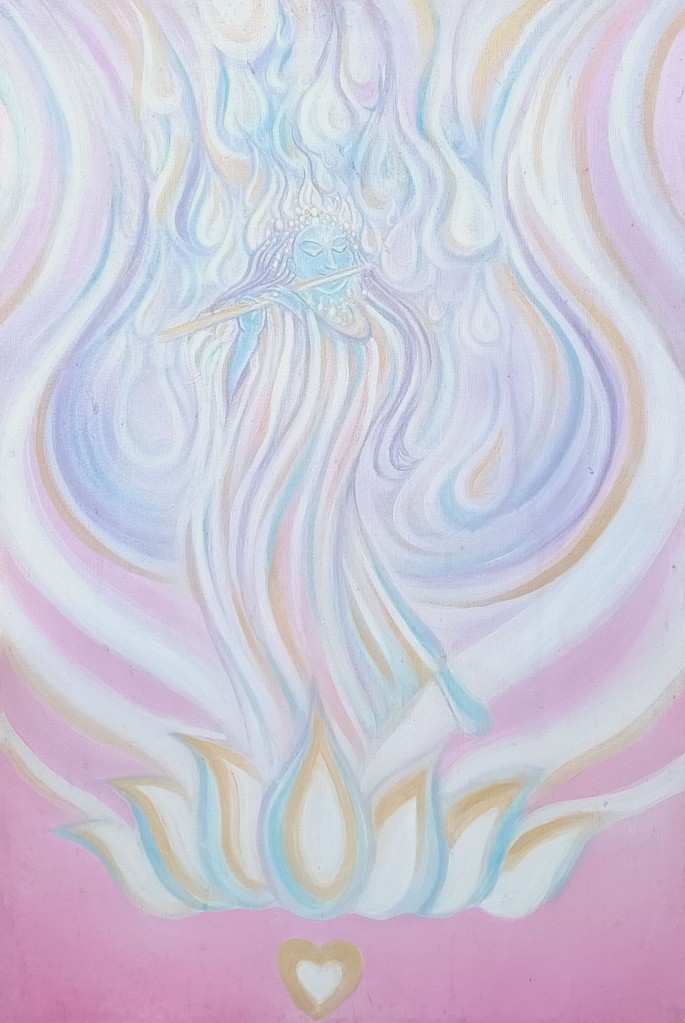
Steve Klepetar
COMING HOME AFTER MIDNIGHT
There was no one awake when I slipped into the old house
after a night of wandering by the lake. In the distance,
wolves sang to each other across the miles. They sang
of their troubles, the shrinking woods, and the stars
struggling through a bath of light. In the bedrooms,
children slept, dreaming of butterflies and elves.
Around their beds, all kinds of dragons – every species
from fire drakes to ice worms, red and white and green,
their golden eyes glowing, their long tongues whispering
protective spells. I climbed the ladder to my attic room,
but tired as I was, I couldn’t sleep, so I slid down the fire
pole to the kitchen, where I found a bag of cherries
we bought at the farmers market in the village near
the river, where the ferry carries workers to the orchards
and fields. All day we wandered around, listening
to acoustic bands, sampling chocolate and tiny quiches,
apples tart as lemon pie, carrots sweet as sugar beets.
Now darkness swells around me as the pits pile up.
I make a pyramid and gather them into my palm.
Slowly I do the dishes, slowly I read the poems you left
on the table for me. Sweetness remains on my tongue,
and even though the news is horrible, I drift off to sleep,
feeling, like the old fool I am, that this life is mostly good.
Mark Young
Götterdämmerung
I wake up late.
Dylan Thomas is in the bed beside me.
He smells of liquor.
I am about to throw him out when he starts speaking.
His words don’t get to me, but, oh, that Welsh accent.
I remember I liked him, long years ago.
Must have been when I was a windy boy & a bit.
I’ve moved on since, following neither that path
nor the road less traveled by.
Other avenues, other trees.
Sometimes, though, when the winds die down
& dreams are thin on the ground
you can hear the old voices.
Even though they no longer speak to you
you pause & listen to them.
Joe Balaz
Words Are Many Antelopes
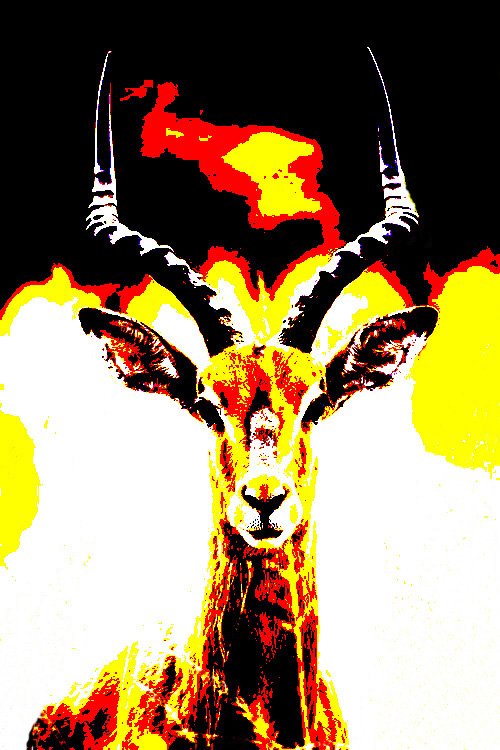
Joe Balaz – visual, poem, electric guitar, bass guitar, percussion
Kathy (Lady) Smith
BREAKFAST AT THE BORDERLINE
Breakfast out into the Sunday Gestalt
The slow burn highway
quest of focal vision right through
landscape of peripheral
Sit on a bench beside the door
it sticks a little before you
can get it open, wait for eat
to become eight
Drink full coffee down before
waiter comes around for
fresh pot proper cream cup
proportion
Good time Motown music and
a two year old’s occasional cry in a
high class greasy diner
Young woman in a sea shell
dress and a man with scrambled egg voice
comfortable making money
two years from college
Elbows on the table I
cradle my head against my knuckles
like a sumo wrestler ready for the
next locution to ooze across
the table
Got my glasses off and stare at
fuzzy you, remember myself dreamy-eyed
in a 20 year old photo another
20 years of us to go
Panhandler on the
highway entrance has a nice way
Have a nice day folks
he says
Russian dolls gotta have
a sense of humor – being a Russian doll
Steven B. Smith
Got in metal beast
drove Babylonian money road
to tin can maintenance
where I sit in Mammon’s waiting room
awaiting big medium or little pain
which will be paid by plastic
then back to cash alley
to drive too fast
and like Schrodinger’s catbox
done and redone
until the great undone comes
ends my mundane insane wrong lane blame game
of same same same
and I’m done
good dog
get bone
go home
Walter Bargen
LATE, LATER, LATEST
The beginning of August, the first rush
of autumn pours blue through the window,
floods the bed. Sure to induce the bends
if I surface too quickly. A cardinal’s bloody
aria knifes the air.
Of course, I’m on the edge of late,
a word often used in Botswana
for those who are more than late.
Later than ever before.
Later than they will ever be again.
We must be patient in our waiting.
I speed past the cattail-choked pond
trying to make my first appointment.
The three decades-old station wagon
points one way as I turn
the other into Friday morning traffic.
The receptionist asks, How am I doing?
My answer, I’m here, she nods her head.
In the treatment room, I’m running with cats
though only the linear accelerator is purring.
On my back, lines of red lasers glitter
across my lower abdomen. A lead shield
positioned over my genitals. Spangled in a ticker tape
of light, I’m a half-naked parade going nowhere,
starting at 10:30 a.m., five days a week
for the next eight weeks.
The music from speakers hang high
in each corner of the treatment room.
Radar Love, Teen Angel, My Boyfriends Back
pours down. I feel the notes enter my pelvis
and wonder at the extent of the damage.
Back in the subwaiting room,
wrapped in a faded blue gown,
I see cattails lining the road
that’s cheaply framed painted,
hanging on the wall across from
where I sit. Late comes
for everyone and not just today.
I happen to be early,
having written down the wrong time.
Kathryn Waddell Takara
PERSONALS
Painful
pulling strands from your
deserted hair brushes,
smelling your perfumes.
Your scent is like incense in your room,
familiar, sacred.
Painful.
going through your dozens
of undergarments:
laces/silks/satins/
paled-colored elegance.
Generous as a woman could be,
You, Mother,
despite your reserved demeanor,
your sometimes haughty ways,
tender and sweet.
My daughters and I
will share/wear/value
you and your belongings
so personally.
Mahealani Wendt
WHAT I WANTED TO SAY TO MY MOTHER
Mother, in your arms
I was baptized in fire:
In through the soft fontanel
I breathed your blue flame, it
Seared my swollen raised skin
Turning it black as burnished leather.
And on that pyre of maternal love
I bled until desiccated,
My heart and entrails
So much powder
For a Chinsese apothecary.
And all that funereal time
What was left of me?–
A ghost in blue bottles.
Michael Nyers

Karla Brundage
SWALLOWING WATERMELONS
(waiting for the phone to ring)
Swallowing whole watermelons of sorrow
breaths come shallow
like one no longer
dependent on the earth to give her breath.
Grasping but not reaching
our child is a lifeline to your absence
beholden through tangle of wires
invisible vines of communication,
forever linked by her birth.
I am you now
you are me now
she is us.
Lee A. Tonouchi
KAIMUKI GRANDMA ON BEING UCHINANCHU
My Grandma always used to say
Okinawans and Naichi different.
Wen she wen go visit her friends
dey nevah ax her fo’ go in da house.
I axed, “Hakum?”
“Cuz das Naichi style,
you gotta call first
or dey no invite you inside.”
Den one noddah time my Grandma
wuz cleaning da refigerator
and had all da freezer food all ovah da place.
Den unexpected kine Miyashiro man came.
Embarrassing wuz my Grandma sed
cuz da kitchen wuz so messy
and nevah get snacks fo’ serve too.
Me and my Grandma wuz at Times Supah Mahket
da oddah week and I axed her
“Eh, Grandma, hakum you shakin’ da lettuce?”
I tot maybe if da leaf fall off
den dat means junk or someting.
But she toll me she jus seen
da old Chinese Pake lady doing dat
so she copy.
I sed, “Oh hakum?”
and my Grandma sed
“Take off da extra water.
Shinbonin. Save money.
Good idea I tink so.”
Lucien Darjeun Meadows
Mile 0—
Gould Community Center
Half an hour until the race begins and everyone tight in the one-room lodge beside the single start and finish line: four walls, one door, and a fireplace that will be lit when the first finisher crosses and will burn until the last finisher returns. This lodge was a WWII prisoner of war camp, the race organizers say. The German prisoners tried to escape once, in the spring of 1945, but they were found, not far from here, and marched back barefoot. The organizers chuckle. All these white faces, nodding, smiling back. The air outside feathers with frost, still over an hour before dawn. Inside, a ranger talks to his radio about rain and hail expected this afternoon. Niicííbiicéí’, the Arapaho name these lands. It is never summer here. For how much longer. By the door, the runner who declared his “Indian name” after one training run he led from start to finish. Now it’s all he will answer to. Near the ranger, the man who said I never knew you were Cherokee, are you a full-blood? I start to shiver. I can’t think about this now. I can’t not. Across the room, some runners sit on metal folding chairs, half-asleep were it not for their feet thrumming the concrete floor. Three minutes to start. Outside by the start, halfway back in the pack, still shivering. Twig appears with three friends from training weekend a month ago. She lifts her camera, a flash of diamonds and contrails in the air and I spin, find my face inches from a man outfitted for a military expedition, goggles and headlamp and backpack and poles. I don’t belong here. I spin again. I am not ready for this. The runners around me now chanting Eight, seven, six, five and I hear the black drum, and then everyone is cheering the night is opening we are running out, out, away from here.
Chuck Souza
MAIDEN VOYAGE
Chuck Souza – guitar, vocals / Sam Henderson – guitar / Beau Leonidus – bass guitar Greg Kekipi -‘ukulele / Kevin Daley – drums / Mike Paulo – soprano sax
Creed Fernandez – congas, percussion / Kirk Thompson – keyboards
Mary Ellen Derwis
HEALING HANDS
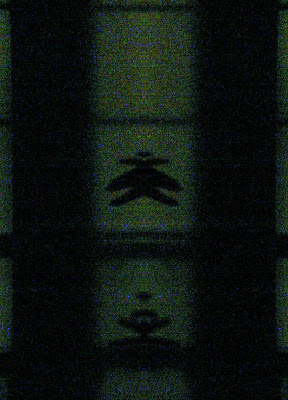
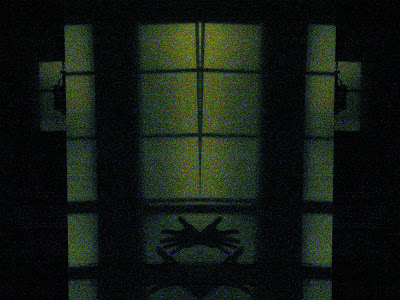


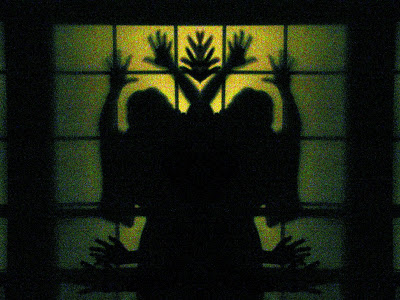
Ben Gage
ANOTHER SONG – about growing old
Ben Gage – song, vocal, acoustic guitar, harmonica
Steven B. Smith
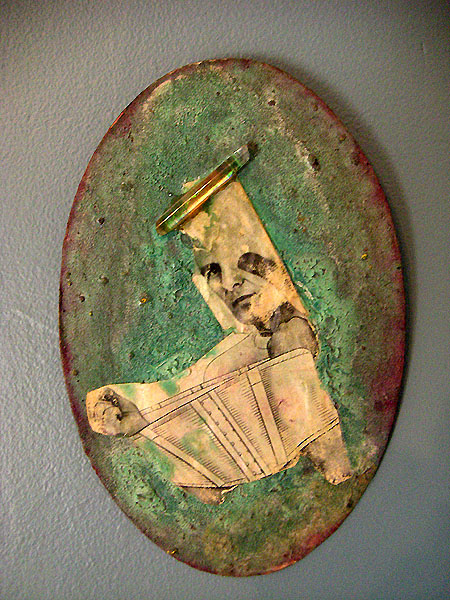
Jason Floyd Williams
Jim, that restless roaming character, is dead.
Jim was twist-tie thin.
Corroded water pipe thin.
Lone railroad track sprawling
miles across the Dakotas, no traffic,
no animals, no company,
only loneliness, thin.
A man on-the-edge of society—
a tone deaf trumpeter in
the local marching band—
a man out-of-sync w/
the rest of us,
a man not-of-this-century.
Despite his punk rock accoutrements—
spiked bracelets, studded belts,
black neckerchiefs—he had
the look (bird’s nest beard,
pond brown, shredded wheat hair,
Teddy Roosevelt glasses, cigarette
constantly in hand or lip) of a
Mid-1880s frontiersman.
He wouldn’t be the mountain man
wrestling a mother grizzly in
an oil painting, but he’d be in the background,
maybe loading a pistol.
He wouldn’t have been the Indian scout,
Bloody Knife, who tried to warn
General Custer about Little Bighorn.
But Jim would’ve been
Bloody Knife’s friend.
He would’ve listened to the scout’s
complaints & they would’ve
shared cigarettes.
He wouldn’t have been invited
to General Sherman’s staff meetings
about the march through Georgia, but
I could see the General saying
a kind word about him.
“Jim rolls a damn fine cigarette,”
he might’ve said.
Or, “Lord, Jim always says hello to me,
no matter the daily hardships.”
Some folks are just a little misaligned
w/ modern society.
I know plenty of ‘em.
Jim was one of them.
If you’ve driven through
Cleveland Heights, especially
Coventry, you’ve seen Jim.
He was a fixture, a habit,
a routine, a landmark, for
those of us that worked, lived
or visited here.
Maybe you’ve seen a thin shadow man
w/ his cigarettes—Joe Camel smoke,
chimney smoke, surrounding him
like a warm, carcinogenic blanket.
That was Jim.
He had a family, but no wife,
no kids.
This was his home.
His aquarium.
We were part of it.
We were the friends for
the man-out-of-time.
Goodnight, my friend.
Goodbye, Jim.
Kenneth P. Gurney
CONFESSION TO A HEADSTONE
You did not hesitate
when death arrived dressed to the nines
with roses and champagne
You lived a celebrated life
and were the talk of the town
with a half page obituary.
Death disassembled you
and supplied your water molecules
and minerals for others.
If only it was a Marvel movie
where all the funeral attendees
saw the soft wind take up your dust.
I ordered another cocktail
to reach the drunken point
where I imagined such transpired.
I heard the chamber music.
Death and God waltzed.
It was impossible to tell one from the other.
I hesitated to tap a shoulder
and take my place
on the dance floor.
Laura Ruby
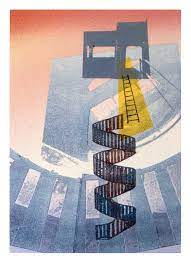
Tony Quagliano
SAD TROPES
Sad as a man writing a three volume
response to Freud
entitled “What Women Want”
while his wife
in the next room…
Sad as a Marxist personally cleaning
her investment condo
to make it labor intensive
Sad as a lifetime subscription to TV Guide
Sad as the minutes of a meeting of a fan club
Sad as a historian who’s got the facts wrong
Sad as game pieces by Parker Brothers
Sad as the perpetrator of a hoax
Sad as the logo on the stationary of an adoption agency
Sad as a man pricing pet food
Sad as a defrocked nun who’s still a virgin
Sad as a rock fan playing a record backwards
to hear Satan’s message
Sad as visiting hours
Sad as a royalty check for Das Kapital
Sad as brain scans of Grace Kelly
Sad as a hoedown in a hospice
Sad as a humanist asking his girlfriend to whip him
Sad as a prisoner whose case is declined
by Amnesty International
Sad as a feminist settling in with a sugar daddy
Sad as a sugar daddy
Sad as a man selling maps to the G spot
Sad as a class reunion in a sexual dysfunction clinic
where dozens were invited
and nobody came
Sad as a man who walks into a psychiatrist’s office
and says doctor, it’s my uncle…
Sad as a projected sequel
Hawai’i Amplified Poetry Ensemble
MOST POWDERFUL NATION
Richard Hamasaki – poem, vocal, and bass / H. Doug Matsuoka – keyboards / Shinichi Takahashi – guitar / Matt Barnett – drums / percussion
Greg Cznadel
SANTA SITS ONE OUT
Santa’s more than worried, about Xmas Eve this year
with all that’s going on, there’s way too much to fear.
In the past he never worried about his deer or drones
or losing all his cargo, everything he owns.
All the newest elves this year, Santa had to vet.
background checks and all, made Mrs. Santa sweat.
Scanners on the runway check bags as they are loaded,
this year he lost some friends on planes that had exploded.
Never had a GPS, took short cuts here to there,
never knew whose air space, didn’t matter, didn’t care.
Never filed flight plans for countries he would cross
who would shoot down Santa, who’d shoot down the boss.
The thought of being robbed in the chimney for his toys
or hijacked on a rooftop by an elf that he employs.
Made Santa go this year, for his concealed gun permit,
hoping that he’d never, ever need a time to use it.
So Santa’s sitting home this year with his deer, and lovely Mrs.
drinking tea with honey and eating candy kisses.
While elves write out his envelopes with names from Santa’s list,
lick and place the stamps, handwriting each address.
So Santa isn’t worried about a missile, gun or bomb
Cause he’s sending you a gift card from Amazon dot com.
And he can just imagine, as kids wait for their bus,
their joy in telling friends, what they got from Toys are Us.
Steven B. Smith
MY ANNUAL EX-CHRISTMAS
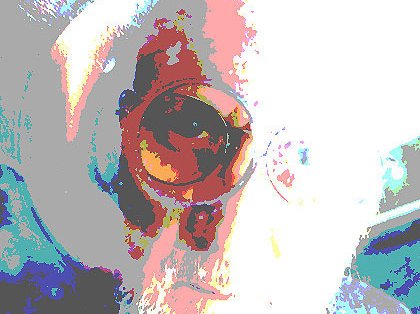
Steven B. Smith – poem and vocals / Peter C. Ball – keyboards, synthesizer, and percussion
Alan Catlin
VAN GOGH CUP WITH WALKING SKULL
on the out of proportion table,
this work place amid the left-
overs: dinner plates stained by
smeared yolks of eggs, rinds
of bread, stale crusts and a
Museum of Art coffee cup;
Vincent, that blue scene in Paris,
cafe tables and fire lighted stars,
a spilled bottle of India ink on
the yellow cloth, not the Escher
spill unleashing a phalanx of
mobius strips, of dream creatures,
lizards and snails, optically elusive
but of another craftsman, mad maker
of demon figures like a Village
of the damned by a Hieronymous
Bosch, deformed-by-sin peasants
set free from a stomach of a mythical
ox like grotesque human ants to scurry
about the ruined doilies, soiled napkins,
matching condiment shakers, souvenirs
from a furtive War of the Roses,
their false bottoms containing secrets
of miniature worlds so easily lost in
the general confusion of warring elements,
uneasy minds, the undeniable presence
of the small, walking skull, its unhinged
jaw dropping small black pellets
like stones, like birdshot on the table
as it walks.
Michael McPherson
ROAD FROM HANALEI
In the car with Tom
I felt death come suddenly close,
a stillness in the rain; it moved me,
confused me, and choking back awkward tears
I said to him, “I . . . don’t think I’m going
to live very long.” He laughed then,
and harshly he asked, “Who is?”
Years later he stole five pounds
of my ganga while I was a guest in his house,
and later on somebody bashed his head in
with a stone, cut his throat and left him
on a long country road.
I begin to understand what I felt during
that moment in the rain, watching
the water fly up from under the wheel,
and I see him standing alone
on a corner by the bay
where these dark roads cross.
Imaikalani Kalahele

Haunani-Kay Trask
REFUSAL
For K.W. class of ’67
Kamehameha Schools
I.
I can’t believe it
shot through the chest
in the doorway, pregnant
lover holding your little son’s
hand, bags of dope
and beach towels
on the floor
didn’t you think
not to open the door
killers waiting by two’s and three’s
in the death street below?
didn’t you stop, dear one
just a second in time
holding sweet life
in your eager young hands
and wonder:
why our men beautiful
and strong on their running
feet, sun in their earth-dark-eyes
why these lean, soft-lined men
go carelessly down
to nothingness
one after another, a whole nation
of men, Hawaiian brothers?
didn’t you pause, my honey
on that threshold of death
glance back at your child
hesitate for life
before flinging it away?
II.
alone, here in the dark
with the women
fighting for the last
petal of blood
I don’t understand
the eyes of our sons
so knowing at twelve
strange at fifteen
almost blank at
twenty-one
were you gone before
that, my brother?
down the white dusty path
to their carefully planned end
of your life?
III.
I can’t believe
you are dead, my darling
the empty fury
of your death, the sound
all around me
bloody, silent
I can’t believe
sons and lovers
shot, hanged, knifed
beaten, drowned
I can’t believe
a nation of men, a whole nation
of Hawaiian men, lean, handsome
and dead.
Christy Passion
LEAVING PARADISE
Unusual for her to care, but the slight shake
of her shoulders was a tell, twelve is a difficult age.
Somehow, somewhere it began to matter:
the jacket a hand-me-down from her brother
and the rubber bands from yesterday’s newspaper
holding back her hair suddenly are awkward,
shameful. Especially on this sunny day
at the waterpark, her first boy-girl party. She decides
to keep her T-shirt on, the ill-fitting blue one-piece
her secret. But the gift wrapped in tinfoil
is not so easily concealed; a solution to the limited
cash in her mother’s worn wallet,
It’s just like real wrapping paper, it’ll be fine.
And the bow, sentimentally put aside at Christmas
now cycling back practical, did help:
the matte yellow contrast against the metallic shine
gave her the courage to come this far—from the car
to the entrance to the gift table set up under the partial shade
of a kukui nut tree. Presents dressed up as flowers,
pink proteas, purple orchids, yellow lehua gathered there
singing out loud. The sun was the first and merciless,
drawing attention to its silvery shell encouraging
the boys’ stare, then turned shoulders whispering,
the birthday girl’s look of confusion, and another mother’s
cover-up, how clever! how pretty! She raised a slim smile
for the kindness, and turned from the table
stepping out of Eden.
Craig Santos Perez
ALOHA WEAR(Y)
I hate aloha shirts.
I hate wearing plumerias, hibiscus, and tiare because I’m allergic to flowers.
I hate wearing pineapples as much as I hate pineapples on my pizza.
I hate wearing endangered birds, fish, and turtles because they are going out of style.
I hate wearing quilt patterns when it’s 90 degrees outside.
I hate collars.
I hate Santa Claus surfing.
I hate wearing boats and helicopters as much as my dad loves watching Magnum PI reruns.
I hate fetishizing hula girls.
I hate buttons.
I hate that Elvis wore a red aloha shirt on his blue Hawai’i album.
I hate wearing sunsets and sunrises even more than I hate poems about romance and hope.
I hate wearing tiki kitsch as much as tourists love getting drunk in tiki bars.
I hate the confusing cultural protocol for aloha shirts.
Is it proper to wear an aloha shirt with Japanese lanterns if I’m not Japanese?
Or an aloha shirt with Chinese incense sticks if I’m not Chinese?
Or an aloha shirt with generic Polynesian motifs if I’m not a generic Polynesian?
Or an aloha shirt with Hawaiian tatau if I’m afraid of needles?
Is it proper to wear Tori Richards if I’m not a haole?
Or Reyns Spooner if I don’t work at the Bank of Hawai’i?
Is “appropriation” one of the many meanings of “aloha”?
Is buying an aloha shirt from Costco less “authentic” than buying an aloha shirt from RIX?
I wish someone made a Chamorro aloha shirt featuring latte stones, betelnut, and SPAM.
I hate that I spent half my first paycheck from my first job here at Sig Zane.
I hate the class hierarchy established by the aloha garment industry.
I hate worrying that someone at pau hana will be wearing the exact same Sig Zane shirt I’m wearing. I hate keeping a spare aloha shirt in my car just in case that ever happens.
I hate feeling like an unpaid employee of the Hawai’i Tourism Authority dressed
in the uniform of “paradise.”
I hate “paradise.”
Chuck Souza
TOO MUCH CARS
Chuck Souza – guitar, vocals / Sam Henderson – guitar / Bob Hernandez – upright bass / Greg Kekipi -‘ukulele / Mike Paulo – alto sax / Kevin Daley – drums
Creed Fernandez – congas, percussion / Kirk Thompson – keyboards and synthesizer trombone
Brandy Nālani McDougall
ON COOKING CAPTAIN COOK
If you ask the blonde-haired concierge
at the Grand Kīhei, he will tell you that we ate him whole,
strung his white meat on a stick,
filled his mouth with apples,
and slow-roasted him over fire.
The sunburned vendor selling t-shirts
in Lāhaina will say we ate him, too,
but only certain parts:
the head, heart, hands
wrapped in a kind of spinach
and held over hot lava.
The owner of the Hoola-Hoola Bar
and Grill will say we only ate him
for lack of fine cuisine,
rubbed his skin with sea salt
then boiled him in coconut milk
and served him on a bed of yams.
My anthropology professor, long researching
ancient cultures, will offer explanations
from his latest book:
The white-skinned men seemed gods
to those without metal or written words.
by eating him they meant to become him.
But if you ask my tūtū
while she waters her orchids and protea
she will invite you in
to eat, to eat.
Dana Naone Hall
CROSSING THE PALI
We’re all young enough
to remember
what it was like
when we were growing up
in Hilo small town or Kāne‘ohe
where it rained rivers of
red dirt in the winter
from all the new-cut hillsides.
There’s still the suggestion
of old streams and lo‘i
under the sunken lawns.
My grandfather had a house
stepping down to a small
stream hidden like a secret,
the shy green spring
of a young girl flowing
in the shade of a mango tree.
Years later we went
away to college climbing
the peaks of Western thought.
But I remember the stories—
my uncle sleeping on the beach
in a hole lined with newspaper,
his youngest brother not far away
in his own hole for the night.
In the morning they gathered
coconuts that had fallen
from the night sky.
On the other side of the island,
my mother’s popo is cooking
bird’s nest soup in the kitchen.
One of my father’s sisters
had a husband who used to twirl
knives for the Samoan fire dance,
which he perfected and later performed
somewhere on the east coast.
Another sister lived in Maple Shade,
New Jersey, while the rest of us
grew thick as bamboo in Kāne‘ohe.
These people are still around
like the brightly colored fish
swimming in the aquarium at
my grand aunt’s house in Kaimukī.
I know that you have the same
kinds of stories lined up
the way you used to line up
with your father, mother
and brothers all in a row
at Saint Joseph’s on Sundays.
Now you’re an attorney
and you act different.
You part your hair
in the middle. You look like
you never get enough sleep.
You’re almost always
in an office, 27th floor,
air conditioning, mirrored windows,
in downtown Honolulu,
and you think the guys
riding around with big tires
and tinted glass are funny.
Look at you, you don’t go
to the beach, you say
you don’t have fun, you work
too hard and for what?
So the big Japanese company
can carve up the coast
like so much raw tuna.
Very refreshing with a little
Kirin after a round of golf.
Meanwhile another company
from Wyoming wants to drill
deep into the mountain directly
above your client’s new resort
to extract high-temperature
steam for electricity.
Never mind that the gases
escaping with the steam
will smell like rotten eggs.
Worry about that when the time comes.
It’s almost midnight
on the day when you questioned me
for more than six hours
about my interest in keeping
the old road in Mākena open
to traffic of all kinds.
All the while, hammering away
for the developer who wants
everybody off the beach before
the hotel opens in late summer.
It’s almost midnight
under the same moon.
Who says you have to go along with it?
Billy McKay
CONSPIRACY

Fourteenth Floor
IT’S A WONDERFUL PARTY
Tim Tapajna – lead vocal, acoustic guitar, electric guitar / Mike Tapajna – electric guitar, saxophone, accompanying vocals / Mark Tapajna – keyboards / Al Rothacker
bass guitar, accompanying vocals / Robert Mozik – drums, percussion, accompanying vocals.
Luigi Russo
NOISE POLLUTION?
Loud…loud…loud
give it to me loud…loud…loud
Aaah…hearing something soft
is like hearing nothing at alllllll
hearing a father whisper
is like hearing nothing at alllllll
Loud…loud…loud
give it to me loud…loud…loud
Ohhh, loud, loud, loud, loud, loud, loudddd
give it to me loud.
Shake a sound away
bring it to my ears
take it all the way
bring it to my ears
loud, loud, loud, loud, loud, loud,
(background noise sang/spoken soft to louder until end)
don’t care if I annoy you
or hurt your feelings
what about my choice
of loud music
don’t care if I go deaf
or make noise pollution
the volume goes up
music gets louder
Aaaah loud…loud…loud
give it to me loud…loud…loud
I love it loud…loud…loud
loud, loud, loud, loud, loud, loud
Shame Banger
BROKEN TOGETHER
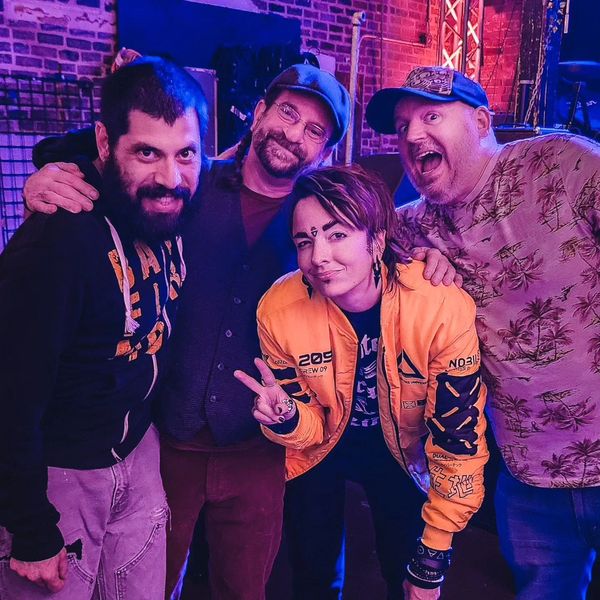
Rowan Chamberlain – vox / Scot Michael – drums / Geoffrey Thomas – electric guitar Jimmy Eager – bass guitar
Fourteenth Floor
KITCHEN FLOOR
Tim Tapajna – lead vocal, acoustic guitar, electric guitar / Mike Tapajna – electric guitar, saxophone, / Mark Tapajna – keyboards / Al Rothacker bass guitar, bugle Robert Mozik – drums, percussion.
Jonathan Taylor
JIMI
Fingers all a flutter
Like swallows dipping and diving
In a golden sunset
Blue notes red notes pink notes purple ones too
Float through the haze
And when it fades away
There he stands
The Blue Wild Angel
He was humpin’ his amplifiers
It was all free love in those days
A west coast Seattle boy
Painted his favourite guitar
And set it ablaze
Because you sacrifice the thing you love the most
I think that’s beautiful
Fourteenth Floor
DOWN ON THE CORNER
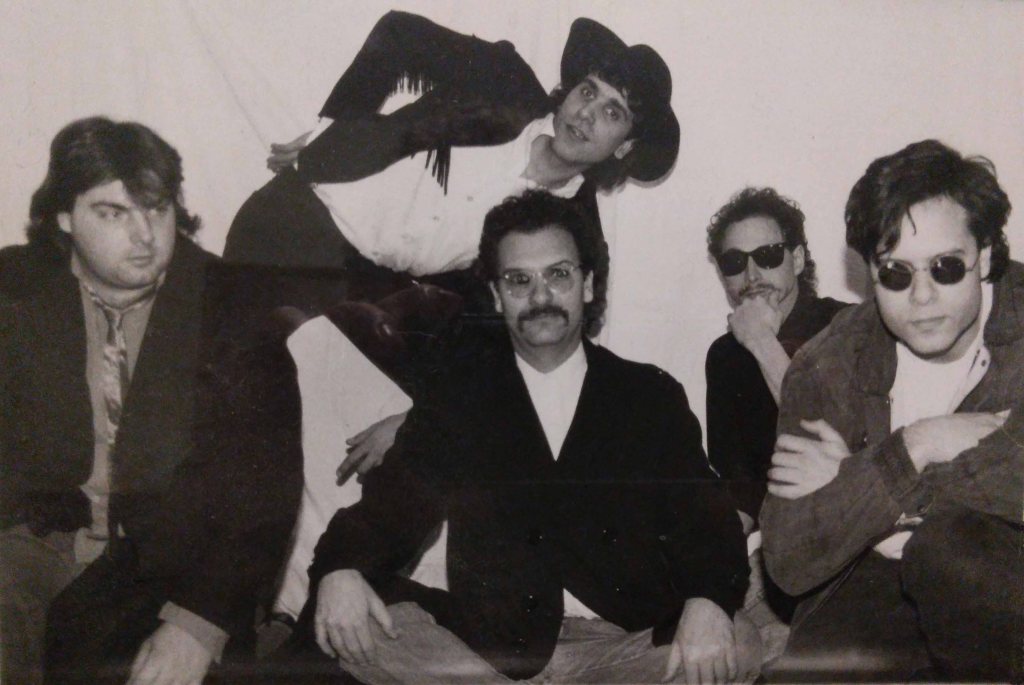
Al Rothacker – bass guitar, accompanying vocals / Tim Tapajna – lead vocal, acoustic guitar, electric guitar / Mark Tapajna – keyboards / Robert Mozik – drums, percussion, accompanying vocals / Mike Tapajna – electric guitar, saxophone, accompanying vocals.
CONTRIBUTORS
Pete C. Ball (1948-2015) was an accomplished keyboardist, music producer, poet, and spiritual searcher from Cleveland, Ohio.
Walter Bargen has published 26 books of poetry. His most recent books are: Too Quick for the Living (2017), My Other Mother’s Red Mercedes (2018), Until Next Time (2019), You Wounded Miracle (2021), Too Late to Turn Back (2023). He was appointed the first poet laureate of Missouri (2008-2009). His poems, essays, and stories have appeared in over 300 magazines.
Karla Brundage is a Bay Area, based poet, activist, and high school teacher. She is the founding director of West Oakland to West Africa, and is the author of
Swallowing Watermelons and Mulatta-Not So Tragic!, two books of poetry. She was born in California, grew up in Hawai’i, and now lives in Oakland, California.
Alan Catlin has been publishing since the 1970s. In addition to more than eighty books and chapbooks of prose and poetry, he has won a number of national contests and awards. The poem “Van Gogh Cup with Walking Skull,” is based on artwork by Stan Rice. Catlin’s most recent book is Exterminating Angels, which is based on noir and art movies.
Donovan Kūhiō Colleps is a Kanaka ʻŌiwi poet, fiction writer, and editor from Puʻuloa Oʻahu. He is the author of Proposed Additions, a collection of documentary poems
about his grandfather. His poems have appeared on the podcast The Slowdown, in the online publication Poem-a Day, as well as in When the Light of the World Was Subdued, Our Songs Came Through, Poetry Magazine, and Indigenous Pacific Islander Eco-Literatures.
John Costello (1950-2015) was born in New York and studied at the School of Visual Arts in Manhattan. He moved to the North Shore of the island of O’ahu in Hawai’i in the early 1970s, and opened Ka’ala Art Gallery in the North Shore town of Hale’iwa in 1980. In the late 1990s Costello relocated to the neighbor island of Maui, and lived in
Hana and Kipahulu until his passing. Costello also created works as a wood carver, and he enjoyed playing music on a small lap held harp.
Greg Cznadel— Enjoying his recent retirement from an aerospace test lab. Avid gardener. Owner of half acre nature preserve, Stomp & Chomp, in Old Brooklyn by the Cleveland Zoo. Writing Xmas greetings each year showing the human side of Santa since 1975. He lives in Old Brooklyn, in the city of Cleveland, Ohio.
Mary Ellen Derwis is a painter and photo artist, and her work has appeared in various publications online and in print. She was born and raised in Cleveland, and later lived in San Francisco, California, before relocating to Honolulu, Hawai’i. She returned to live in Northeast Ohio for a little more than a decade, before moving in 2019 to live in Haymarket, Virginia.
Fourteenth Floor was a Cleveland progressive band that toured for awhile and is
remembered for their impressive cd Circus, Saints, and Sinners. A few of
the songs from that varied music cd is included in this issue. Tim Tapajna – lead vocals – acoustic and electric guitars / Mike Tapajna, electric guitar – saxophone – vocals Mark Tapajna – keyboards / Robert Mozik – drums – percussion – vocals
and Al Rothacker -bass guitar – bugle – harmonica – vocals, were the members of the band.
Ben Gage is a songwriter from Akron, Ohio, blending folk and roots blues. Ben Gage grew up in the rust belt of Northeast Ohio, spread out in the countryside along the great Lake Erie. His roots run deep alongside the hard working blue collars that Ohio has to boast. That tenacity, love of family, and respect for a long day can be seen in his music. In Fall of 2021 Ben quit his job in the tech-sector to pursue music full time. Now he travels the US sharing stories and songs and always collecting more. bengagemusic@gmail.com
Kenneth P. Gurney is an Albuquerque, New Mexico poet. His work has appeared in print and web publications around the world. His latest poetry collection is
Far Away Right Here. More of his work can be found at umflop.com As he ages, he has gained a greater appreciation for things like Pantone 301 C, a smartly turned 5-4-3 double play and movies with few actions sequences.
Dana Naone Hall is a poet and activist, who lives on the island of Maui. Her book Life of the Land Articulations of a Native Writer, is an American Book award winner
from the Before Columbus Foundation. This year she was recognized as a “Champion of the Land” by the Hawaiian Islands Land Trust.
The Hawai’i Amplified Poetry Ensemble was a progressive band that performed “Amplified Poetry.” It featured the poetry of poet Richard Hamasaki, who also vocalized the poetry and played the bass guitar. H. Doug Matsuoka on keyboards, Shinichi Takahashi on electric guitar, and Matt Barnett on drums, were the other members of the band. “Most Powerful Nation” is from their first album of the same name.
Imaikalani Kalahele is a Kanaka Maoli (Native Hawaiian) poet, artist, and musician, whose poetry and art has appeared in literary & art magazines and in anthologies.
He has read his written works at many literary readings, and his artwork has been exhibited widely in Hawai’i, and has also been exhibited nationally and around the world. He is the author of Kalahele, a book of poetry.
Lino Kaona (1948-1986) was a Hawaiian writer who was just beginning to publish his work when he passed away. “MAKE Manu: MANU Make” is a poem that has been republished in several anthologies.
Steve Klepetar lives in the Berkshires in Massachusetts. His work has appeared worldwide in such journals as Boston Literary Magazine, Chiron, Deep Water, Expound, Muddy River Poetry, Red River Review, Snakeskin, Voices Israel, Ygdrasil, and many others. Several of his poems have been nominated for Best of the Net and the Pushcart Prize. New collections include A Landscape in Hell, Family Reunion, and “How Fascism Comes to America.”
Jim Kraus lives in Honolulu, Hawai’i. His poetry has appeared in Hawai’i Review, Kinalamten Gi Pasifiku Anthology (Guam), Poetry Hawai’i, Bamboo Ridge, Kentucky Poetry Review, Virginia Quarterly Review, San Marcos Review, Cape Rock Poetry Review, Neologism, Voices de la Luna, Another Voice and elsewhere. He earned a PhD in American Studies with specialization in environmental poetry from the University of Hawai’i at Mānoa. Currently, he is Professor of English at Chaminade University, where he teaches creative writing, environmental literature and surf studies. He also edits Chaminade Literary Review. He enjoys swimming, surfing, visiting art galleries and museums, and reading contemporary poetry.
Brandy Nālani McDougall is a Kanaka ʻŌiwi (Hawaiʻi, Maui, and Kauaʻi lineages) poet raised on the slopes of Haleakalā on Maui. She is the author of The Salt-Wind, Ka Makani Pa’akai, a book of poetry, and ʻĀina Hānau / Birth Land (The University of Arizona Press, 2023). She is an associate professor of American studies at the University of Hawaiʻi at Mānoa. McDougall was a Guest Editor for Poem-a-Day in May 2022. In 2023, McDougall was appointed Poet Laureate of Hawaiʻi through 2025.
Billy McKay has been creating artwork ever since he was in grade school. After acquiring a degree in art, he went on to help run his family’s local printing business.
It was here that he learned graphic design and different print application skills. His time in the printing industry led to many years of exciting work and successful
relationships with hundreds of area businesses. During that time, he also created and produced underground comics and games that were shipped around the globe.
Billy combines his love of monsters, toys, and 1980’s pop culture into his current line of acrylic paintings. He currently lives in Ohio with his wife, son, cat and 21 year
old goldfish. http://www.artbybillytherobot.com
Michael McPherson (1947-2008) was born in Hilo, moved with his parents to O’ahu in 1954, learned to surf at Waikiki, attended private and public schools, followed the
waves to Maui and Kaua’i, 1965-1970, and completed an M.A. in English at the University of Hawai’i in 1976. He was the first Fiction Editor for the Hawai’i Review in
1972 and a panelist at V Symposium International James Joyce in Paris in 1975. He founded Xenophobia Press in Wailuku in 1980 and published HAPA, a journal of
contemporary literature and literary criticism of Hawai’i, annually on April Fools Day. He is of Scottish, Irish, Norwegian and Hawaiian ancestry, descended from
nineteenth-century sailors and women of the islands.
Lucien Darjeun Meadows was born and raised in the Appalachian Mountains of what is now called Virginia and West Virginia to a family of English, German, and Cherokee descent. He has had his poetry appear in such magazines as West Branch, Hayden’s Ferry, Quarterly West, and other literary publications. An Association of Writers & Writing Programs Intro Journals Project winner, Meadows has also received recognition from the Academy of American Poets.
Mokaki was an improvisational band comprised of multifaceted musicians that wore different hats in different combinations among them, which included being artists,
songwriters, poets, teachers, producers, and activists. They existed as a loose configuration of creative individuals known for their spontaneous improv sessions in
intimate private settings and public venues, that even included guerilla theater. More specific information on the band can be found on YouTube via Mokaki.
Michael Nyers is a designer, mixed media artist, ENFJ, mental health advocate, doer, dreamer, and all around funny guy from Youngstown, Ohio. His passion is blackout poetry, which he sees as a look into the subconscious mind that can promote mindfulness and creativity, benefiting overall well-being and mental health. He is the author of Finding Light in the Darkness – a collection of blackout poetry.
Carl Pao— O’ahu born and raised. Pao is an internationally exhibited visual artist and arts educator living and working in U.S. occupied Hawai’i. He currently resides on Moku o Keawe with his ‘ohana and reconnecting with his kupuna o ‘Ailā’au.
Christy Passion is a critical care nurse and poet. Her work has been featured by the Academy of American Poets, and has appeared in When the Light of the World Was
Subdued, Our Songs Came Through, an anthology of Native Nations Poetry. She is the author of Still Out of Place, a book of poetry.
Craig Santos Perez is a Chamoru from Guahan (Guam). He is the author of six books of poetry and the co-editor of six anthologies. He is a professor in the English
department at the University of Hawai’i at Mānoa.
Tony Quagliano (1941-2007) was an experimental poet and editor. His work was innovative in pushing the boundaries of poetry in general with his experimental approaches to form and language. As a poet, essayist, literary critic, jazz writer, and editor, he was widely published. Quagliano was a professor of American Studies at Japan American Institute for Management Science at the University of Hawai’i.
Laura Ruby is a Hawai’i Living Treasure Honoree and a recipient of the Hawai’i Individual Artist Fellowship Award, and has exhibited her work widely. Her prints and
sculptures have been shown in national and international juried and invitational exhibitions. She recently was a professor in the Art History department at University of Hawaiʻi at Mānoa, where she taught art and honors in a long career that has spanned a little more than three decades.
Luigi Russo has published several poetry books, and believes that poetry holds encrypted truths. Although he resides in rural parts unknown, he was born and raised in Cleveland. He is a librarian, G.I. Joe collector, and loves working out in his basement dungeon. His favorite poet is James Douglas Morrison, and he appreciates
life’s trials with his wife and four sons while drinking a dark beer. “Noise Pollution?,” is from Chorus, Chorus, Come To Me, one of his dozen books of poetry.
Shame Banger is an eclectic, uncomfortable punk band from Seattle, WA. Unable to keep things tidy, their diverse musical interests call out from under the post-punk
inspired vocals. Their songs touch on heavy topics from trauma to politics with snark and self awareness, taking every opportunity to remind anyone who will listen that
it’s okay to be broken as long as we’re together.
Kathy (Lady) Smith finds inspiration in nature, particularly birds and local wild animals. She draws creative ideas from her relationship with her husband, cat, and dog, as well as the spiritual inspiration she finds in the Cleveland Metropark adjacent to her backyard. Her style is free verse with internal rhyme, and poetry is often narrative in nature. Lady’s love for nature and storytelling extends beyond her poetry as she also wrote a book with her husband to record the story of the first half of his
life – Stations of the Lost and Found. Lady works to make positive ripples in the world and inspire others to do the same. She is the editor of The City Poetry, a literary and art magazine of Cleveland, and she lives in Cleveland, Ohio.
Steven B. Smith, — poetry, art, fotos since 1964. He lives in Cleveland, Ohio.
Snake was a progressive regional band in upstate New York, beginning in the late 1960s. Peter Chamberlain artist, educator, and musician, played keyboards in the group, with band mates Simeon Slovacek on lead guitar, Vince Arpey on drums, Michael Armstrong as lead singer, and Larry Ward on bass guitar. “She Burns” was recorded in Schuylerville , NY in 1970.
Chuck Kawai’olu Souza – Artist, Musician, Song Writer, Teacher, retired Firefighter. Hawaiian. E ola mau ka po’e maoli me kakou mau leo ma Polinekia a puni ka honua!
—translation: Long live the native people and our voices in Polynesia and around the world! “E Nana” is from Lava in Their Soul, a cd album of his original songs.
Souza lives in Lihue, on the island of Kaua’i in Hawai’i.
Joseph Stanton has published eight books of poems. The most recent are Lifelines (2023), Prevailing Winds (2022), Moving Pictures (2019), and Things Seen (2016).
His poems have appeared in 13 Miles from Cleveland, Poetry, New Letters, Harvard Review, Antioch Review, New York Quarterly, and many other magazines. He has taught poetry workshops at Poets House in New York City and at the Honolulu Museum of Art. He is a Professor Emeritus at the University of Hawai’i at Mānoa.
Kathryn Takara is an Afro-futurist, eco-poet, and warrior for social justice, and has published eleven books of poetry, most recently Seasons in Haiku. She has long been
an advocate for spoken word poetry in Hawai’i, often accompanied by collaborative music and dance. Takara has also done literary and historical research on Blacks in
Hawai’i, including the inventor Alice Augusta Ball, as well as the former Civil Rights advocate, poet, and labor activist Frank Marshall Davis. In 1971, after co-founding and teaching Black Studies, a branch of Ethnic Studies at the University of Hawai’i at Mānoa, Kathryn Waddell Takara PhD, retired in 2007 from 31 years as a professor
at the University of Hawai’i at Mānoa, and Windward Community College.
Jonathan Taylor is an Anishnaabe from the Curve Lake First Nation in Ontario, Canada. He writes poetry, is an Anishnaabemowin language consultant, and teaches
Anishnaabemowin to children and adults in his community. Taylor’s writing has appeared in Red Ink Magazine, Yellow Medicine Review, Quills Canadian Poetry Journal, and the Muckleshoot Review. He belongs to the Turtle clan and writes for Crazy Horse and NDN girls.
Lee A. Tonouchi is well known for writing in Hawai’i Creole English. He is the author of the acclaimed Significant Moments in da Life of Oriental Faddah and Son: One Hawai’i Okinawan Journal, a poetry collection of his work. Tonouchi most recently stay da recipient of da 2021-2022 Tony Quagliano Poetry Award and da 2023 American Association for Applied Linguistics Distinguished Public Service Award for his work in raising public awareness of important language-related issues and promoting linguistic social justice.
Haunani-Kay Trask (October 3, 1949 – July 3, 2021) was a Native Hawaiian activist, educator, author, and poet. She served as one of the leaders of the Hawaiian sovereignty movement and was professor emeritus at the University of Hawai’i at Mānoa. She was a founder of the Kamakakūokalani Center for Hawaiian Studies at the University of Hawaiʻi at Mānoa, and served as its director for almost ten years. Trask published two books of poetry, Light in the Crevice Never Seen and Night Is a Sharkskin Drum. Her poetry was published widely in literary publications and anthologies.
Mahealani Perez Wendt’s recent work is published in three fairly recent anthologies. When the Light of the World Was Subdued, Our Songs Came Through edited by former US Poet Laureate Joy Harjo, the Academy of American Poet’s Poem-a-Day series (poets.org) anthology edited by Brandy Nālani McDougall, and Writing the Land: Windblown II, edited by Lis McLoughlin.
Maualaivao Albert Wendt is a Pacific Islander, and he is acknowledged internationally as one of the major novelists and poets from that broad expanse of native islands. He lives in Aotearoa with his partner Reina Whaitiri.
Jason Floyd Williams, the 11th contestant on the 8th season of Alone—the one not talked about, the one not shown, the one forgotten about since the lawsuit—has been
competitively eating hot tofu wings in Columbus, Ohio for the past 10 years. Occasionally, he writes poems. The poem “Jim, that restless roaming character, is dead,” is from Inheritance Tax, a book of his poetry.
Rob Sean Wilson is a Western Connecticut native who received a doctorate in English at the University of California at Berkeley, and was the founding editor of the Berkeley Review. He has taught in the English Department at the University of Hawai’i at Manoa and Korea University in Seoul, and was a National Science Council visiting professor at National Tsing Hua University in Taiwan. Since 2001, he has worked as professor of American literature, creative writing, and poetics at the University of California at Santa Cruz. He has written multiple books of poetry and cultural criticism, and his poems have appeared in numerous publications. “In that Crazy World of 1944 Before You were Born Again” is from When the Nikita Moon Rose, his latest book of poetry.
Mark Young was born in Aotearoa / New Zealand but now lives in a small town in North Queensland in Australia. He is the author of more than sixty books,
the most recent of which is with the slow-paced turtle replaced by a fast fish, published by Sandy Press in May, 2023.
13 MILES FROM CLEVELAND
Edited by Joe Balaz
Joe Balaz lives in Northeast Ohio in the city of Cleveland. He edited Ramrod- A Literary and Art Journal of Hawai’i, and was also the editor of Ho’omanoa: An Anthology of Contemporary Hawaiian Literature.
Editor’s Note: This issue continues to share work from Ohio writers, artists, and musicians, as well as writers, artists, and musicians from Hawai’i and other Pacific Islander nations, mixed in with creative people nationally, and internationally. If it were possible to share the creative work of beings on the planet Bazarazzaton, which is somewhere near Alpha Centauri, all of that other worldly creativity would find a welcome place in 13 Miles from Cleveland as well. Mahalo and thank you to all the many people who have shared their creative work, in the past, present, and potentially, in the possible future. It is a pleasure for myself to paint on a broad canvas with such diverse creativity. The end result reveals unseen colors of the human spectrum to be read, seen, heard, and appreciated by everyone that visits this online magazine of writing, visual art, and music.
All works appearing in 13 Miles from Cleveland are the sole property of their respective authors and artists, and may not be reproduced in any way or form without their permission. © 2023
